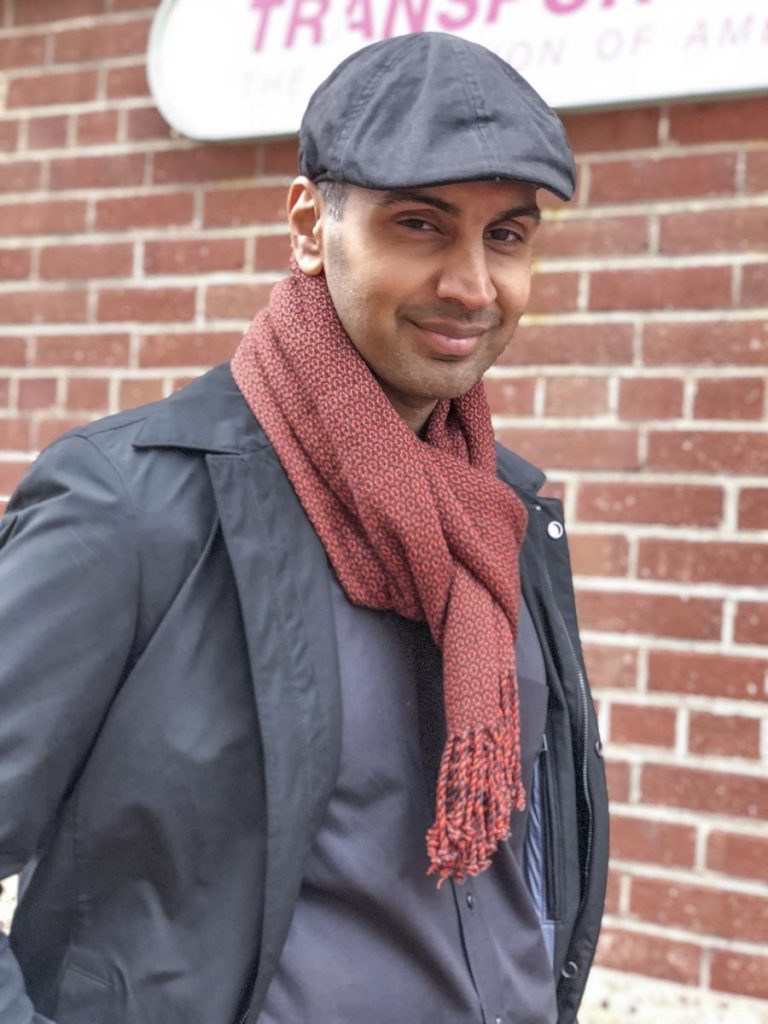Indians who grew up after independence have not processed colonialism’s trauma
By Murali Balaji
In 2004 i was dispatched to india to cover the aftermath of the devastating tsunami, and afterward I took the opportunity to spend time with my grandfather in Chennai and listen to stories about his experiences living in the colonial era of India.
My grandfather grew up poor in Tamil Nadu. For Hindus in his village to get what was considered a good education, families pooled or borrowed their money or, in the extreme, converted to Christianity: missionaries frequently visited Hindu homes to offer a free education in exchange for conversion, and a number of my grandfather’s peers converted as a way of getting out of poverty.
My grandfather’s stories helped me to understand how colonial rule impacted the faith of generations of Indian Hindus and the practices they passed down to their children born and raised in the United States. For his generation and my father’s, defining what it means to be Hindu, and Indian, is still very difficult.
My dad was born in 1946, a year before independence from Britain, and my mother a decade later. Growing up in liberated India, their post-World War II generation was encouraged to adopt a certain style of secularism embedded within India’s new social fabric. Many were also educated in Christian schools, taught a completely different idea of religion than what they learned at home. That in turn informed how they practiced their faith when Indians began moving to the United States after 1965. The staunchness with which many Indian Hindus believed in dogmatic secularism meant that they carried a distinct shame of simply being Hindu or didn’t know why they said the prayers or performed the rituals they did. Hinduism’s core philosophies were largely ignored or misunderstood.
I still meet older Indian Hindus who are reluctant to identify as Hindu, even if they are regular temple-goers and follow a specific sampradaya. As one older friend told me, many in his generation were more schooled on the Baltimore Catechism than they were the Vedas, Upanishads and other Hindu texts. Many in my dad’s generation, now retired, are only now finally taking time to understand more about a religion they were born into but didn’t really know.
As a result, the trauma of colonialism has never been fully processed, and many Indian Hindu immigrants were unable or unwilling to acknowledge the ways in which their religious and spiritual illiteracy impacted their self-conceptualization in the USA, where they were often marginalized religious minorities and frequently had to apologize for their “foreignness.” Many in my parents’ generation took on American (Christian) names and tried to explain Hinduism to friends in distinctly Abrahamic terms.
Upon entering college myself and being proselytized almost daily by the Campus Crusade for Christ, I realized how precarious my sense of Hinduness was. I grew upset at my parents’ generation for not equipping mine with the tools we needed to cope with being religious minorities in a mostly Christian country. Some, like my dad, have become much more religious and curious in their later stages in life. I have friends in my age group—including some who at one point left the faith only to return later—who have also taken a more active role in understanding Hinduism and explaining it to their kids. I’m now far more empathetic to those previous generations who never had a chance to connect with their faith through shared understanding and dialogue.
Perhaps that sense of decolonizing has come too late for some, but it’s still important to note that for many Indian and Indian American Hindus, the sense of identity and connection to a spiritual home is still a work in progress. Even as India continues its own journey from the vestiges of colonialism, Hinduism will continue to evolve and adapt to the changing attitudes and views of the billion people worldwide who embrace it.


ABOUT THE AUTHOR
Murali Balaji is a journalist and a lecturer at the Annenberg School for Communication at the University of Pennsylvania.


